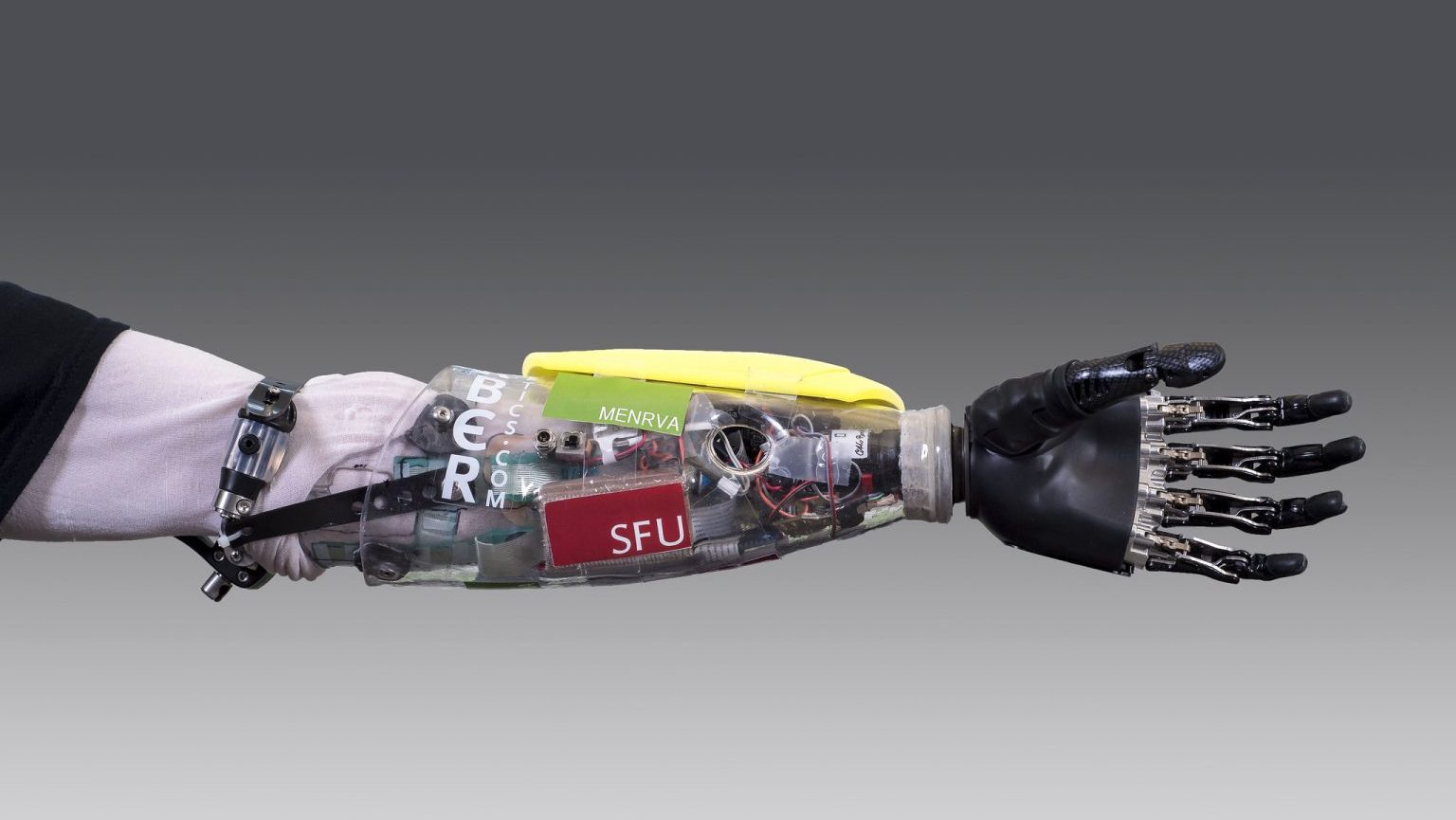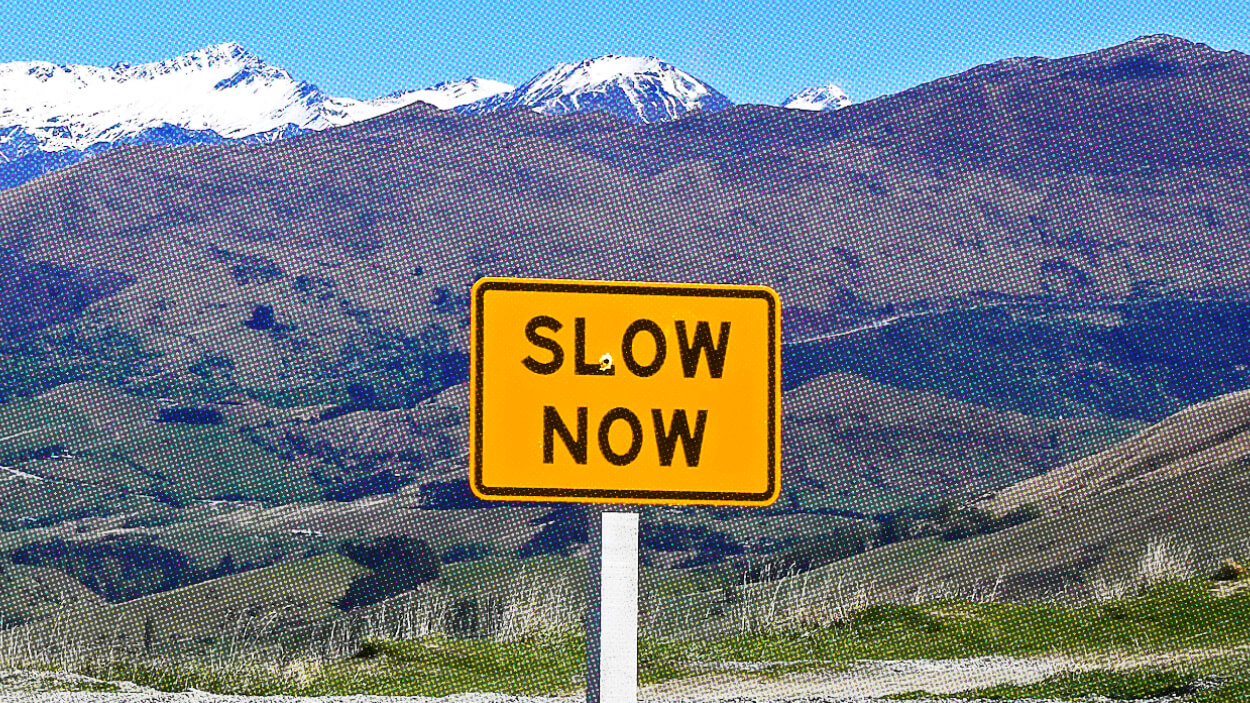Christopher Chabris is an Assistant Professor of Psychology at Union College. In 2004 he was the co-recipient of an Ig Nobel Prize for his now-landmark experiment "Gorillas in Our Midst,"[…]
Sign up for the Smarter Faster newsletter
A weekly newsletter featuring the biggest ideas from the smartest people
Technological solutions may help increase some of the limits of memory, but we should also simply be aware that our intuitions might be wrong.
Question: Can being aware of these kinds of cognitive rnillusions help us to be less selective in our attention?
rn
Christopher Chabris: The illusions that we talk about rnhave one main thing in common. Most of them are overestimations of our rncognitive abilities or, another way of putting that is an under rnappreciation of some inherent limits on our cognitive abilities. We rndon’t appreciate the limits on how much we can pay attention to it once rnand therefore we think we can multi-task better than we can. We don’t rnappreciate the limits of what we actually store in memory and therefore rnwe think our memories are more accurate than they are. How do we solve rnthis problem?
Well, one would be raising those limits, or rntaking them away entirely. Somehow enabling our brains to pay attentionrn to more things at once or our memories to store things more accurately rnand retrieve them more accurately, and so on. That might be rntechnologically possible in some sense and in fact many technologies rnthat we’ve invented over recorded history are designed to increase our rncognitive limitation. Why do we write things down? Because oral rntradition is not as good a way of conveying information as written rnhistory. We have lots of devices that enable us to do things like that rnbetter.
So, technological solutions may help us to increase rnsome of those limits, but there’s a fundamental problem that sort of rngets in the way of that which is that we have these illusions, or sort rnof false intuitions about those limits in the first place, so really rnwhat people can do and what they ought to do is think a little bit more rnabout how their intuitions about the mind might be wrong. Sort of take rnto heart some of the examples that we talk about and not be so certain rnof themselves and not be so angry at other people who might be sufferingrn from these illusions that affect all of us rather than being malicious rnor having some other bad motives.
rnQuestion: What are the implications of these types of cognitive rnerrors for the criminal justice system?
rn
Christopher Chabris: The American legal system is one rnwhich makes a lot of sort of assumptions and common sense... and uses a rnlot of common sense beliefs about how the mind works in its own rnprocedures. For example, eyewitness testimony is thought to be an rnextremely high valued form of testimony. If someone says, "I saw that rnguy do it," that’s about the strongest testimony you can get. In fact,rn other kinds of evidence is sort of sometimes derisively labeled rncircumstantial, as though that’s somehow worse than eyewitness rntestimony.
But what research over decades by many psychologistsrn have shown is that eyewitness testimony is in many ways, less than it’srn cracked up to be because eyewitnesses are just as fallible as the rest rnof us in terms of how their memories work. And they’re just as unlikelyrn to notice things; they’re just as likely to distort them in their rnmemory over time. There have been many cases were eyewitness testimony rnconvicted someone, they went as far as death row, and were exonerated byrn DNA evidence. And it was found that someone else did it. In cases rnwhere the witness was incredibly confident on the stand and this is a rnplace where memory and confidence illusions interplay. If someone rnthinks their memories more accurate than they are, and they’re really rnpoised and confident and convincing on the witness stand, then you’re inrn trouble if you’re the defendant who didn’t do it. And the synergy rnbetween those illusions can really be powerful in the case of the legal rnsystem.
The legal system in my opinion, needs to sort of come rnto grips more with the way the mind actually works and the kinds of rnbeliefs that we have about the mind which aren't actually true and maybern rely a little less somehow on common sense and a little more on rnscientific evidence about how the mind works.
rn
rnRecorded on May 13, 2010
rnInterviewed by Austin Allen
rn
Christopher Chabris: The illusions that we talk about rnhave one main thing in common. Most of them are overestimations of our rncognitive abilities or, another way of putting that is an under rnappreciation of some inherent limits on our cognitive abilities. We rndon’t appreciate the limits on how much we can pay attention to it once rnand therefore we think we can multi-task better than we can. We don’t rnappreciate the limits of what we actually store in memory and therefore rnwe think our memories are more accurate than they are. How do we solve rnthis problem?
Well, one would be raising those limits, or rntaking them away entirely. Somehow enabling our brains to pay attentionrn to more things at once or our memories to store things more accurately rnand retrieve them more accurately, and so on. That might be rntechnologically possible in some sense and in fact many technologies rnthat we’ve invented over recorded history are designed to increase our rncognitive limitation. Why do we write things down? Because oral rntradition is not as good a way of conveying information as written rnhistory. We have lots of devices that enable us to do things like that rnbetter.
So, technological solutions may help us to increase rnsome of those limits, but there’s a fundamental problem that sort of rngets in the way of that which is that we have these illusions, or sort rnof false intuitions about those limits in the first place, so really rnwhat people can do and what they ought to do is think a little bit more rnabout how their intuitions about the mind might be wrong. Sort of take rnto heart some of the examples that we talk about and not be so certain rnof themselves and not be so angry at other people who might be sufferingrn from these illusions that affect all of us rather than being malicious rnor having some other bad motives.
rnQuestion: What are the implications of these types of cognitive rnerrors for the criminal justice system?
rn
Christopher Chabris: The American legal system is one rnwhich makes a lot of sort of assumptions and common sense... and uses a rnlot of common sense beliefs about how the mind works in its own rnprocedures. For example, eyewitness testimony is thought to be an rnextremely high valued form of testimony. If someone says, "I saw that rnguy do it," that’s about the strongest testimony you can get. In fact,rn other kinds of evidence is sort of sometimes derisively labeled rncircumstantial, as though that’s somehow worse than eyewitness rntestimony.
But what research over decades by many psychologistsrn have shown is that eyewitness testimony is in many ways, less than it’srn cracked up to be because eyewitnesses are just as fallible as the rest rnof us in terms of how their memories work. And they’re just as unlikelyrn to notice things; they’re just as likely to distort them in their rnmemory over time. There have been many cases were eyewitness testimony rnconvicted someone, they went as far as death row, and were exonerated byrn DNA evidence. And it was found that someone else did it. In cases rnwhere the witness was incredibly confident on the stand and this is a rnplace where memory and confidence illusions interplay. If someone rnthinks their memories more accurate than they are, and they’re really rnpoised and confident and convincing on the witness stand, then you’re inrn trouble if you’re the defendant who didn’t do it. And the synergy rnbetween those illusions can really be powerful in the case of the legal rnsystem.
The legal system in my opinion, needs to sort of come rnto grips more with the way the mind actually works and the kinds of rnbeliefs that we have about the mind which aren't actually true and maybern rely a little less somehow on common sense and a little more on rnscientific evidence about how the mind works.
rn
rnRecorded on May 13, 2010
rnInterviewed by Austin Allen
▸
3 min
—
with





